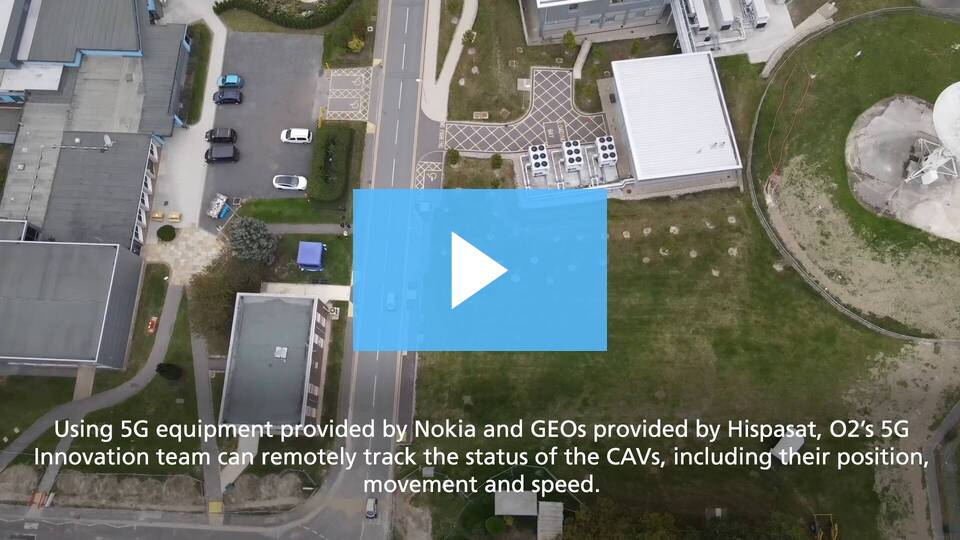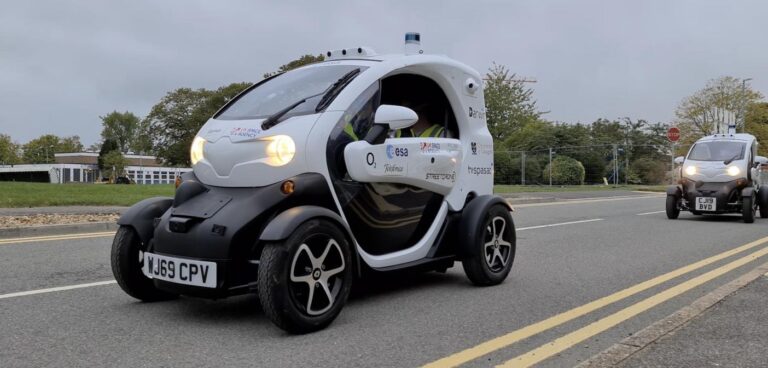Telecoms company O2 has today launched a new commercial driverless car research lab at Harwell in Oxfordshire.
Backed by funding from the UK Space Agency, the Darwin SatCom Lab – based at the Harwell Science and Innovation Campus – will invite businesses to test driverless cars and use 5G and satellite technology to trial ways of keeping vehicles connected.
UK science minister, Amanda Solloway, said: “The UK’s space sector is applying pioneering technologies such as satellite and 5G to essential products and services that will help to transform our everyday lives.
“I am incredibly excited that O2’s first-of-its-kind driverless car lab will enable our most innovative businesses to test these technologies and bring us another step closer to putting self-driving vehicles safely on our roads.”
At the site, O2 has already converted two Renault Twizy EVs into driverless cars fitted with lidar sensors that allow them to be controlled from the lab and driven around the campus.
Using 5G equipment provided by Nokia and geosynchronous communications satellites (GEOs) provided by satellite operator Hispasat, O2’s team can remotely track the status of each Twizy, including their position, movement and speed.

A digital twin version will also be broadcast to screens in O2’s laboratory at the University of Glasgow and at the company’s headquarters at Bath Road, Slough.
One of the proofs of concept already being tested at Darwin SatCom Lab tracks the CO2 emissions of the vehicles using the lidar sensors.
By using satellite imagery to see the areas the vehicles are travelling through and monitor local biodiversity, the laboratory team is able to calculate the emissions savings of taking different routes based on carbon capture from nearby trees. This research will inform how O2’s retail partners carry out last-mile deliveries.
The lab forms part of Project Darwin – a four-year programme backed by the UK Space Agency and the European Space Agency.





